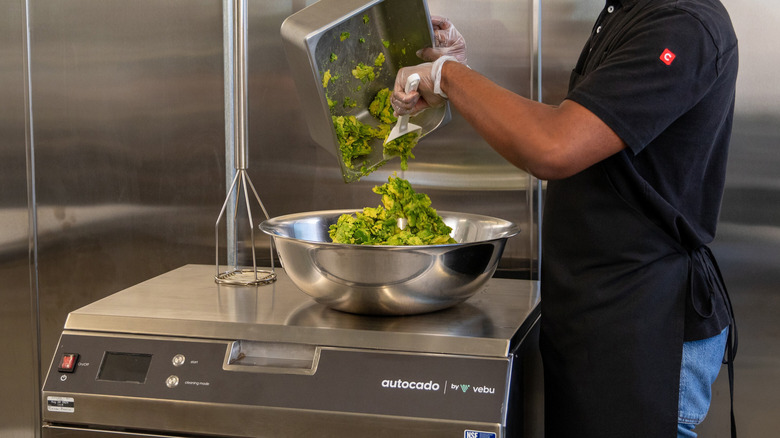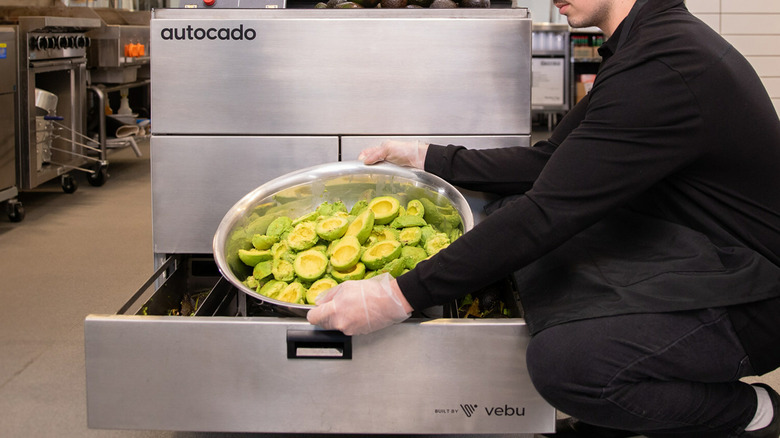Chipotle Debuts Autocado, An Avocado-Peeling Robot, At One Of Its Locations
There's a lot of chatter in the public square around the advancement of robotics and artificial intelligence, and a core feature of this conversation revolves around how these technologies will affect the job market. Although the pace of adoption isn't quite as severe as some doomsayers were suggesting, more and more companies are investing in automation. The latest company working with robotics? Chipotle. In 2023, Chipotle announced that it was testing a robot to help with guacamole prep. It appears the testing phase is over now, as the company announced that it has already begun using this new robot at its Huntington Beach, CA location.
Meet the Autocado, a machine that takes whole avocados and processes them by cutting, coring, and peeling them. The Autocado is the result of a collaboration between Chipotle and Vebu, a robotics company that Chipotle has heavily invested in through its Cultivate Next venture fund. Vebu refers to its machines as "cobots" (collaborative robots), which is strikingly soft language to use for the technology set to upend everything we know about how a market economy can function. Whether the cobot title will stick, only time can tell, but the Autocado will likely roll out to more locations in the coming weeks or months to help cut down on prep time. The machine can process a single avocado start to finish in roughly 26 seconds, which could seem a little slow for a machine; though its speed will likely only improve from here.
How automation is changing the fast-casual food industry
It's interesting to see how different tech companies are approaching the problem of robotics in customer service oriented industries like Chipotle. Some companies appear to prioritize a more anthropomorphic design, with some robots even being given the ability to chew and taste food. That doesn't appear to be the case with the Autocado, the design of which more closely resembles a typical commercial kitchen countertop or industrial dishwasher.
With a more inconspicuous design like this, the increased automation of our everyday lives will likely be less obvious to us as consumers. If we were to walk into Chipotle and order a burrito from a humanoid robot with bright neon eyes that blink, the contrast is obvious. If we see a human employee pull sliced avocados from under what looks like a cupboard and start to make guacamole with them, the contrast is less obvious. Even still, as automation increases, the number of employees needed to run a store will decrease, so the outcome is more or less the same.
For now, Chipotle workers are still necessary to run the operation. Although the Autocado processes the avocados, you still need a human being to prepare the guacamole by hand. Chipotle is working on other methods of automation, including a robot designed to speed up digital orders for bowls and salads, but the day when your local Chipotle is run entirely by machines appears to still be a few years away.

